Pakistan faces growing anger over sectarian bombings
"Attack on Hazara Shias in Quetta is a failure of intelligence and security forces", says governor Balochistan.

Pakistani Shiite Muslims demonstrate following yesterday's bomb attack in Quetta. PHOTO: AFP
The country's leaders have done little to contain hardliners which have stepped up a campaign of bombings and assassinations of minority Shias.
On Saturday, Lashkar-e-Jhangvi (LeJ), seen as the most ruthless sectarian group, claimed responsibility for the attack in Quetta, which deepened suspicions among Shias that Pakistan's intelligence agencies were turning a blind eye to the bloodshed or even supporting extremists.
"The terrorist attack on the Hazara Shia community in Quetta is a failure of the intelligence and security forces," Nawab Zulfiqar Ali Magsi, governor of Balochistan province, said while touring a hospital.
Leaders of the ethnic Shia Hazara community called on the government to take decisive action, and Pakistanis warned that sectarian violence was spiraling out of control.
"The government is responsible for terrorist attacks and killings in the Hazara community because its security forces have not conducted operations against extremist groups," said Aziz Hazara, vice president of the Hazara Democratic Party.
"We are giving the government 48 hours to arrest the culprits involved in the killing of our people and after that we will launch strong protests."
The death toll from Saturday's bombing rose overnight, with most of the casualties in the main bazaar of the town, capital of Balochistan, near the border with Afghanistan.
Most of the dead were Hazaras. A senior security official said the figure could rise as 20 people were critically wounded.
On Sunday, people searched for survivors under blocks of cement torn off buildings by the blast. A large blood stain could be seen on a wall near the site.
Many shops and bazaars were closed. Relatives of the wounded responded for an appeal for blood made by hospitals.
"The government knows exactly who is doing what and who is behind all this," said Mohammad Imran, a local trader. "If the government wants (to prevent it), no one can take even a kitchen knife into any market."
In the capital Islamabad, about 400 people staged a protest demanding the government to stamp out extremism.
"There is a law of the jungle, but in this country I think there is not even a law of the jungle," said Syed Abbas Naqvi, a Shia.
"A person who is extremely helpless, vulnerable and powerless is always made the target of barbarity whereas all brutal people like the terrorists, Taliban and others who carry out these merciless acts, roam free all over the country."
Protests were also held in other cities, including the commercial capital Karachi, and in Quetta.
Poverty, corruption, power cuts
Public anger has been growing over a host of other issues in the run-up to elections, from widespread poverty to power cuts to corruption. But waves of major sectarian attacks have highlighted its poor track record on security.
Critics say Pakistan's intelligence agencies previously supported groups like LeJ to fight against Indian forces in Kashmir and failed subsequently to control them.
Now Shias in Quetta and other cities say they are under siege. "We have grown tired of picking up the bodies of our loved ones," said Nasir Ali, 45, a government employee. "I have lost three family members so far in such blasts."
LeJ has also said it was behind a bombing last month in Quetta which killed nearly 100 people, one of Pakistan's worst sectarian attacks.
After that incident, Shia leaders called on Pakistan's military to take over security in Quetta and take on the LeJ.
Sectarian violence is piling pressure on the US backed administration, which already faces a Taliban insurgency, to ensure stability.
"Unless we decide to unite, we will continue to get killed, said Malik Afzal, a Sunni student. "Today they (Shias) have died. Tomorrow we (Sunnis) will die. The next day, others will get killed."
Pakistani intelligence officials say extremist groups, led by LeJ, want to destabilise the nation through sectarian violence and pave the way for a Sunni theocracy.
More than 400 Shias were killed in Pakistan last year, many by hitmen or bombs.


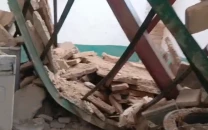
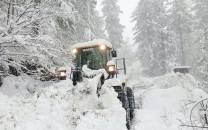
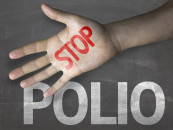
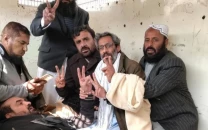
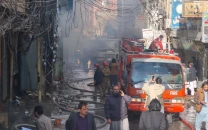












COMMENTS
Comments are moderated and generally will be posted if they are on-topic and not abusive.
For more information, please see our Comments FAQ